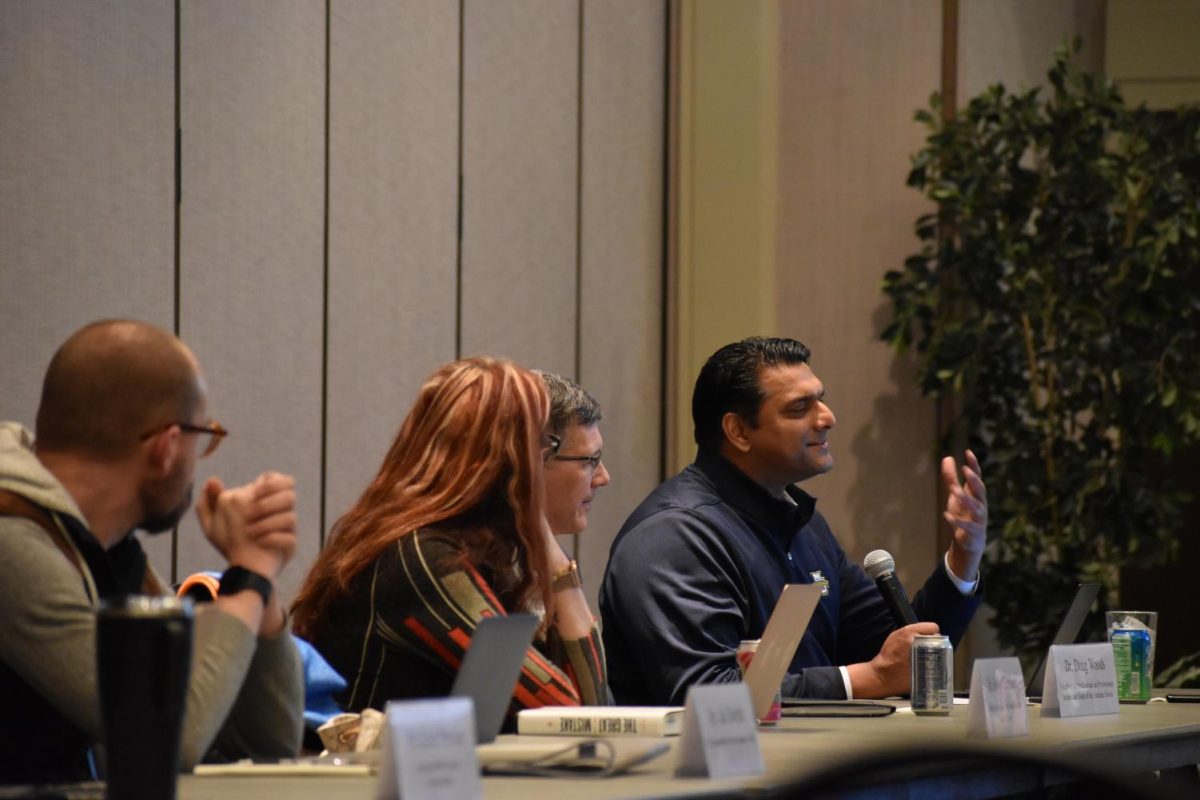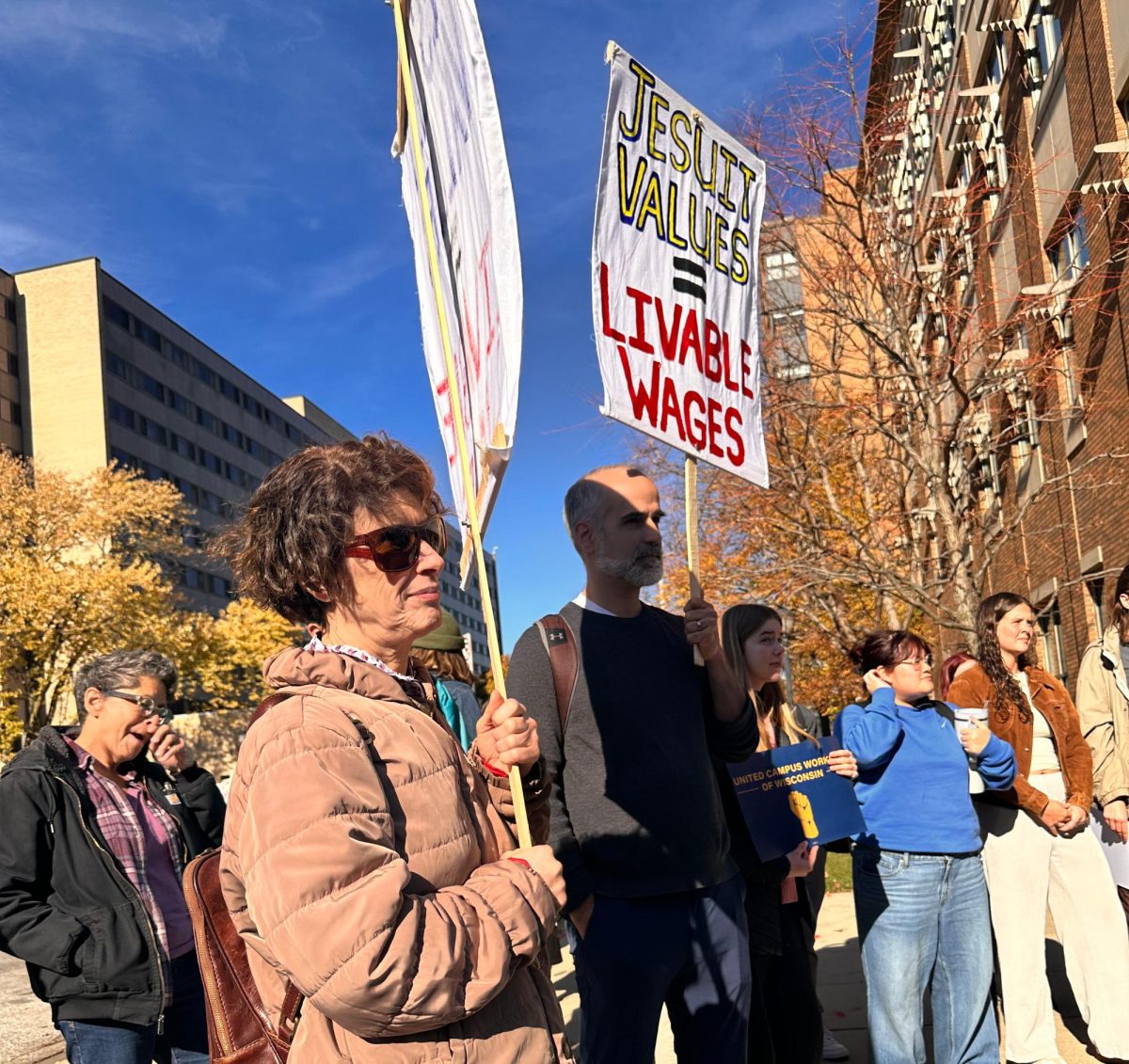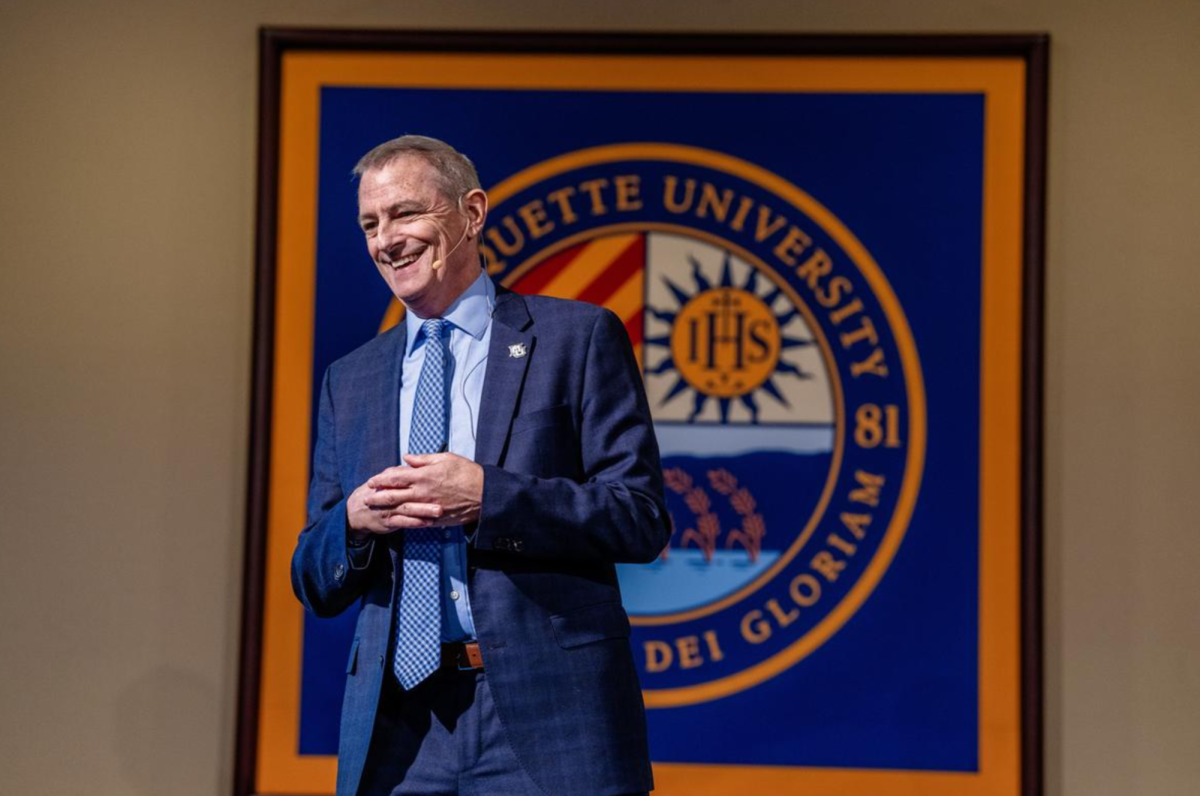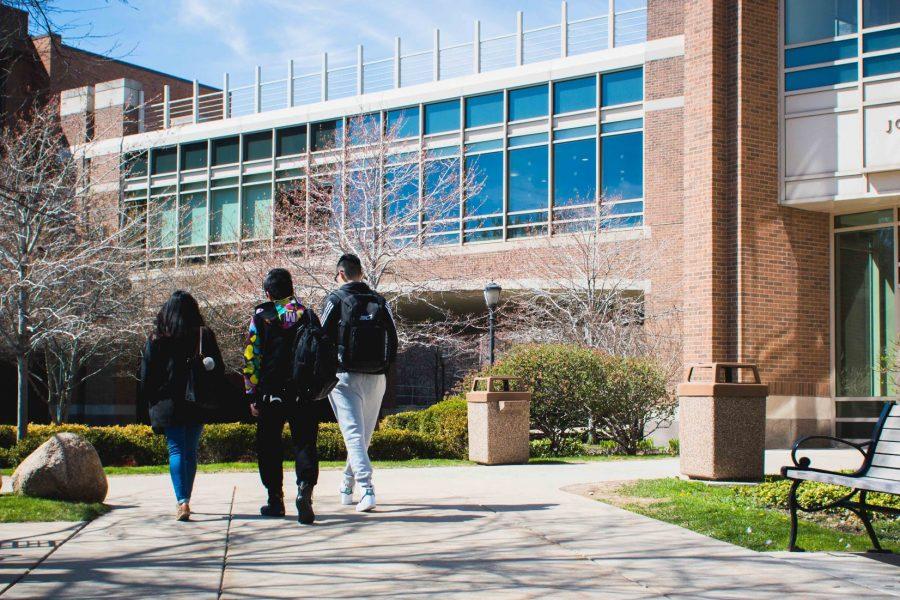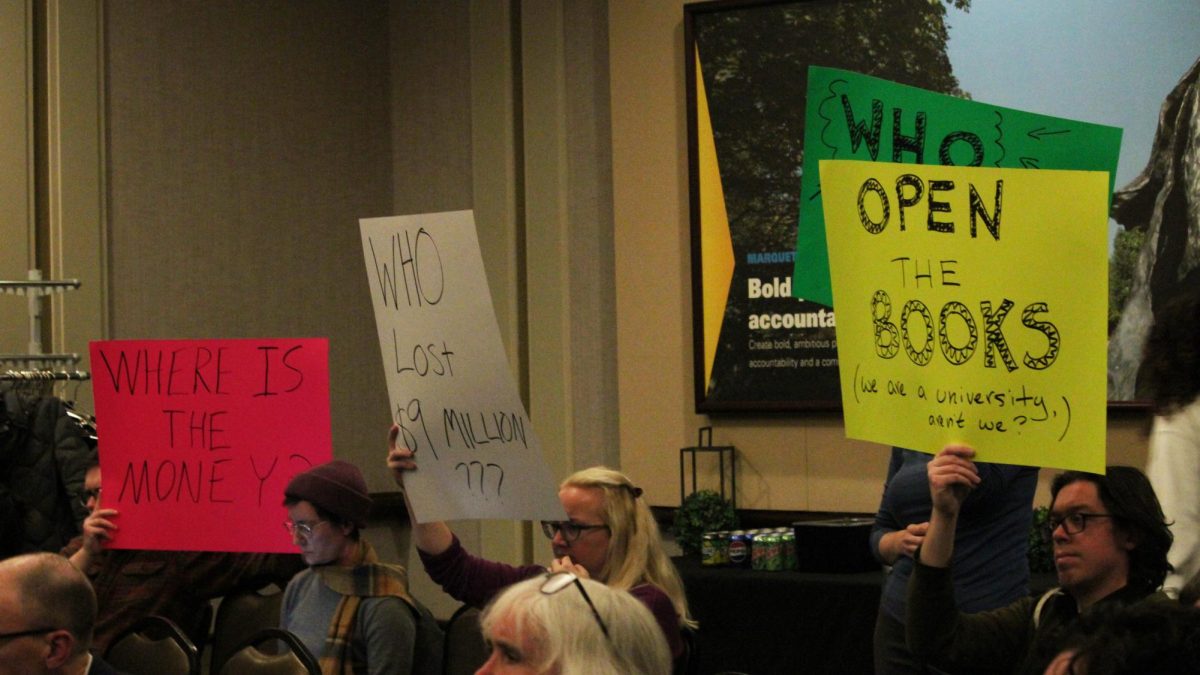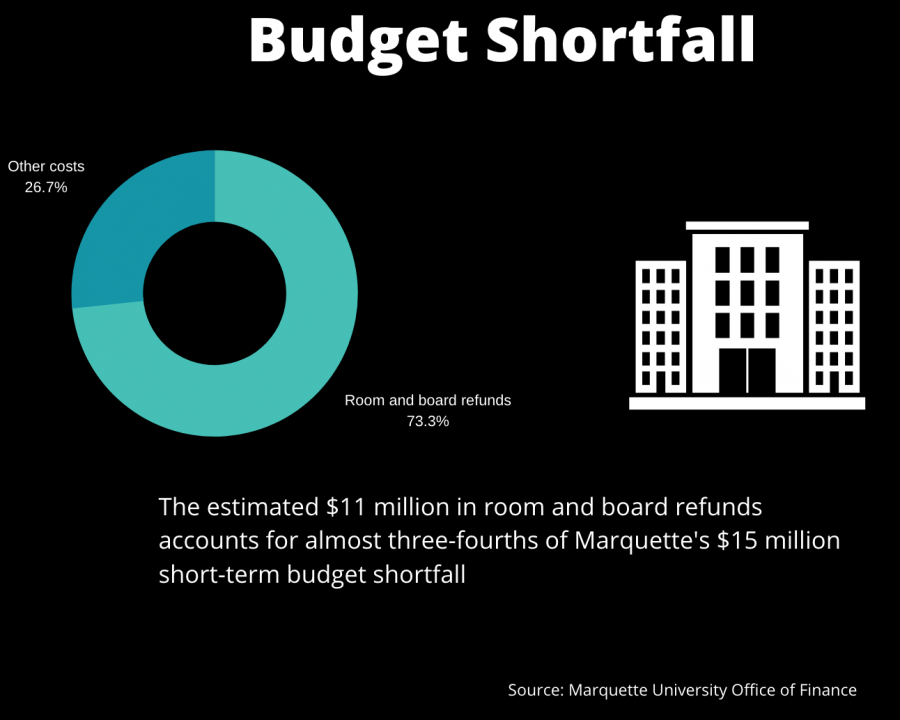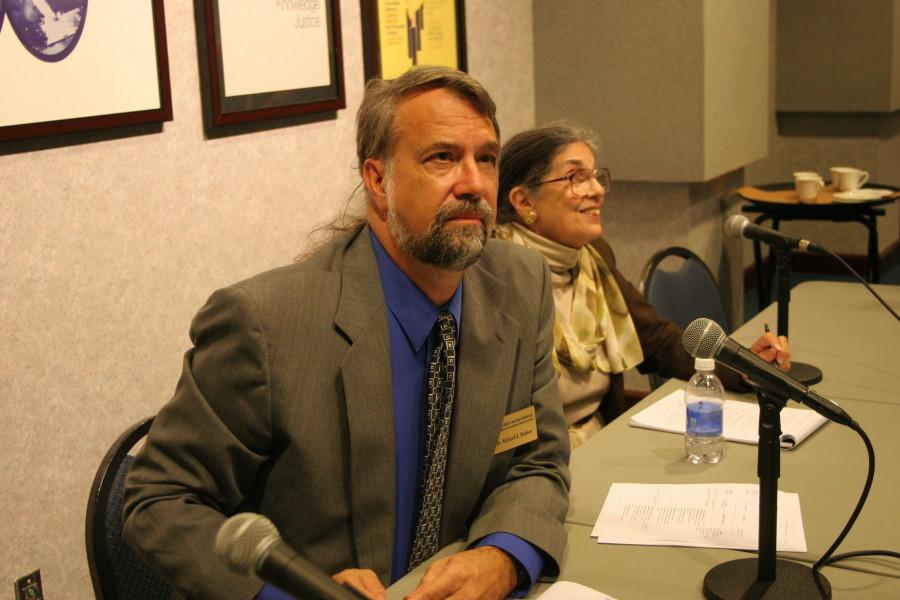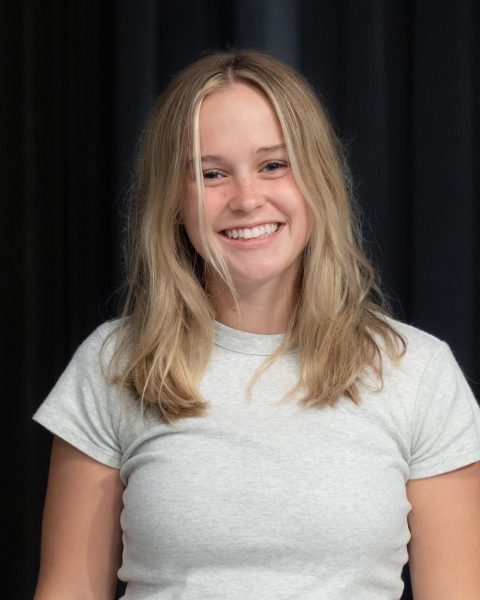Stipend increases for graduate students, updates on the fiscal year 2024 budget shortfall, Higher Learning Commission reaffirmation results and reorganization for the Office of the Provost were announced at the University Academic Senate meeting Feb 19.
Potential stipend increases:
Doug Woods, Dean of the Graduate School and Vice Provost for Graduate and Professional Studies said he hopes the stipends will increase 15-25% with the current stipend ranging from $17,600-$24,130 over a 10-month period.
Woods said the goal of this work group is to address the concerns of graduate students when it comes to healthcare and stipend rates.
“We had formed a workgroup with the senate and the graduate school to come up with some solutions, with the reality being we don’t have a lot of extra money to invest in this,” Woods said.
Woods said if they were to give every graduate student health insurance they would need $3.5 million added to the current budget.
However, Woods said they’ve been able to come up with some solutions that the whole committee agreed on.
“We found that it’s possible to use federal work study money to subsidize stipends. We found a good chunk of money we might be able to invest in increasing stipends,” Woods said.
Woods said a survey was sent out to graduate students to get a better understanding of the healthcare status of the population.
The University said in a statement that the survey found 94% of students have health insurance, 53% are currently insured through family, partner’s or employer’s insurance plan. More than a quarter of the respondents said they’re insured through healthcare.gov.
The university said about 250 graduate students partook in the survey. As of Oct. 2023, there are 1,721 graduate and professional students at Marquette.
Budget shortfall updates:
Lowell Barrington, chair of the University Faculty Committee on Budgets and Financial Planning gave a report to the University Academic Senate based on information they gathered on the fiscal year 2024 $9.5 million budget shortfall.
Barrington said the committee met a number of times throughout winter break and had their last meeting Feb. 2 to construct this report. They’re currently working on a full budget report that will be distributed in the coming months.
Takeaways in the report will include: Context of the fiscal year 2024 budget shortfall, additional factors for people to understand why the shortfall happened, impact the budget shortfall will have and looking ahead at recommendations.
The UFCBFP compiled interviews with representatives and Deans, collected data from publicly available budgets and annual reports. Barrington said nobody who they requested to meet with declined.
When the financial committee was created, Barrington said the hope was that they’d be able to see what’s happening with budgeting and financial planning more transparently.
“Leading up to the shortfall, there was a serious failure in shared governance… we learned about this [budget shortfall], as the Committee on Budgets and Financial Planning, at the same time as everyone else,” Barrington said.
Reorganization of the Office of the Provost:
University Provost Kimo Ah Yun announced a proposition to reorganize the roles in the Office of the Provost to realign with the new strategic plan.
Doug Woods, Gary Meyer, Senior Vice Provost for Faculty Affairs, and Claudia Paetsch, Vice President for Human Resources, were put in charge of evaluating the way the office is currently structured and issued suggestions. They interviewed everyone in each position to get a better understanding of how each job functions.
The proposed organization of the office will be: Vice President for Student Affairs and University Belonging, Vice Provost for Academic Affairs and Student Success, Vice President for Enrollment and Dean of the Graduate School, Chief Academic Effectiveness Officer and Chief Wellness Officer.
All positions would report directly to the Provost. Ah Yun said the process was aimed at consolidating different duties.
Ah Yun said the next step is to keep feedback on the structure and make changes for the final structure.
Higher Learning Commission reaffirmation results
When Marquette University was accredited this fall, the accreditation commission questioned the syllabi in a sample of courses and recommended the university make three major changes.
By January of 2026, the university is expected to have fully addressed each suggestion.
They asked the school to share 2-3 dozen different syllabi from a range of different classes. The commission wanted to know what the learning objectives and outcomes were in different classes.
One of the recommendations is for them to clarify learning outcomes across cross-listed courses between undergraduate and graduate courses.
“They saw some syllabi that didn’t have any learning outcomes in them. They saw some syllabi that didn’t have dates or names on them, so they are concerned,” Meyer said.
The other recommendation is to improve the consistency across sections for the same course.
“When they looked at the syllabi from different instructors teaching different sections in that course, they had some common learning outcomes and some different. They saw other syllabi from different sections had completely different outcomes,”
Meyer said the commission believes that when two students register for a course in different sections, they should be leaving the class with the same knowledge.
The last suggestion is that the program these learning outcomes should be found online for all programs.
This story was written by Sophia Tiedge. She can be reached at [email protected].


